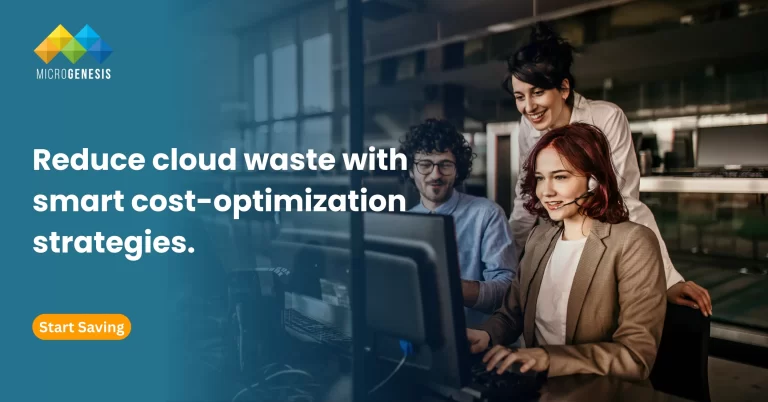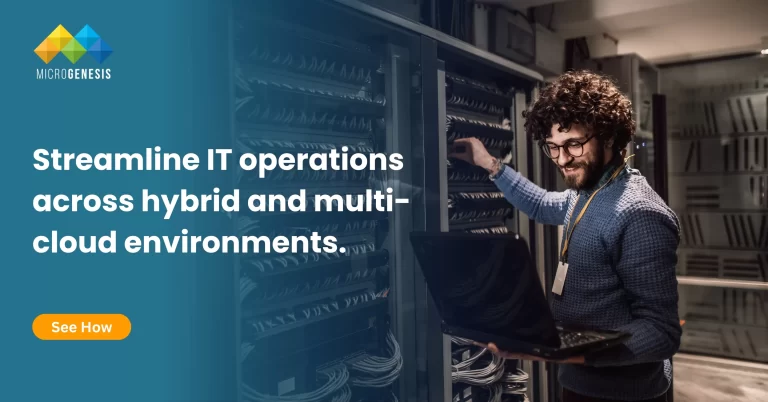How do companies keep their software safe while building it? That’s where DevSecOps comes in. In 2022, the DevSecOps market was worth $4.4 billion and is set to grow to $30.51 billion by 2032. This growth is driven by increasing cyber threats and the use of advanced technologies like AI and cloud computing. Leveraging comprehensive DevOps services can enhance your DevSecOps strategy, ensuring robust security throughout the development lifecycle.
DevSecOps helps find problems early, speeds up development, and cuts risks. For example, more than 72% of security pros say their security is “good” or “strong” thanks to DevSecOps.
Want to know more about how DevSecOps software can keep your projects safe? Keep reading to find out!
What is DevSecOps?
DevSecOps stands for Development, Security, and Operations. It makes sure security is part of every step in making software, from start to finish. Usually, security checks happen at the end. But with DevSecOps technologies, they happen all the time.
Think of it like building a house. Normally, you add security alarms after it’s built. But with DevSecOps, you build the house with security in every room from the start. This way, it’s faster and safer.
DevSecOps security uses different technologies to keep security in the process. This includes tools for static application security testing (SAST), dynamic application security testing (DAST), and container security. This way, problems are found and fixed quickly
DevSecOps vs. DevOps
DevSecOps makes sure security is not added later but is part of everything from the beginning. This way, you find and fix security problems early, which saves time and cuts risks. When developers, operations, and security teams work together, the software is safer and more reliable.
Let’s break it down with a simple comparison.
| Aspect | DevOps | DevSecOps |
| Focus | Speed and efficiency in development and operations | Speed, efficiency, and security in development and operations |
| Security Integration | Added later, often at the end | Integrated from the start |
| Team Collaboration | Developers and Operations | Developers, Operations, and Security |
| Risk Management | Identified and managed post-deployment | Continuous risk assessment and mitigation |
| Tools Used | CI/CD tools, configuration management | CI/CD tools, configuration management, security tools |
| Automation | Primarily for deployment and testing | Extensive automation, including security checks (using DevSecOps automation tools) |
Why is DevSecOps important?
DevSecOps is important because it makes security part of the whole development process. Here’s why DevSecOps implementation matters:
- Faster Development: With DevSecOps, security checks are built into the process. This means developers can release code faster. Over 54% of organisations use DevSecOps to speed up development while keeping it secure
- Better Security: DevSecOps security solutions help find problems early. This reduces the risk of costly security breaches. Cybercrime is expected to cost the world over $200 billion in 2025, showing the need for good security.
- Teamwork: DevSecOps helps development, security, and operations teams work better together. This makes sure everyone knows the security needs and practices, leading to smoother work.
- Cost Savings: Fixing security issues early saves money. It’s cheaper to fix problems during development than after release. Avoiding breaches also saves money and protects the company’s reputation.
What are the Benefits of DevSecOps?
DevSecOps brings a lot of benefits to the table, making it a crucial part of modern software development. By integrating security into every step of the development process, DevSecOps ensures that security issues are caught early and dealt with quickly. This proactive approach helps in building more secure, reliable, and efficient software.
Let’s look at some of the key benefits.
Improved Security
One of the biggest benefits of DevSecOps is improved security. Since security practices are integrated from the start, potential vulnerabilities are identified and fixed early. This reduces the risk of security breaches and helps in maintaining a strong security posture.
For instance, a study found that companies adopting DevSecOps see a 68% reduction in security incidents. This approach not only protects sensitive data but also builds trust with users. Moreover, DevSecOps managed services provide continuous monitoring and real-time threat detection, further increasing security.
Faster Delivery
DevSecOps speeds up the software delivery process. By automating security checks and integrating them into the CI/CD pipeline, teams can quickly identify and fix issues without slowing down development. This results in faster delivery of secure software.
For example, a survey showed that teams using DevSecOps deliver software faster than those using traditional methods. This rapid delivery is essential in today’s fast-paced digital world, where time to market is crucial.
DevSecOps support and maintenance ensure that security measures are consistently updated and applied, keeping the software secure without compromising on speed.
Cost Efficiency
Implementing DevSecOps can lead to significant cost savings. Early detection and resolution of security issues prevent costly fixes after deployment. According to a report, fixing a security issue during the development phase costs six times less than fixing it after deployment. This cost efficiency extends to compliance as well.
DevSecOps practices help in maintaining compliance with regulatory standards, avoiding hefty fines. With DevSecOps managed services, companies can optimise their security spend by leveraging expert services and tools, ensuring robust security at a lower cost.
Enhanced Collaboration
DevSecOps helps teams work better together. It breaks down barriers between development, security, and operations. Everyone works as a team, sharing the job of keeping things secure.
A company improved its API security using DevSecOps, as shown in a case study from Cloud Security Web. Before DevSecOps, their security processes were messy, and their teams didn’t communicate well. This led to security gaps. But after starting DevSecOps, they saw big improvements. The teams began working closely, fixing security issues early. This proactive method cut down risks and made everything run smoother.
Also, the 2024 Global DevSecOps Report by GitLab showed that using DevSecOps can boost team collaboration. Better teamwork not only improves security but also makes everyone more productive. Regular chats and solving problems together are key parts of DevSecOps support and maintenance. This keeps improving security practices and helps align them with development goals.
These real examples show that DevSecOps makes teams stronger. It encourages regular communication, shared duties, and continuous monitoring. This approach not only boosts security but also makes teams work more efficiently together.
Read more: DevOps Best Practices for Digital Transformation: MicroGenesis Insights
What are the Challenges of DevSecOps?
DevSecOps has many benefits, but it also has challenges. These can make it hard for companies to fully adopt DevSecOps.
- Cultural Change: Adopting DevSecOps needs a big cultural shift. Teams need to work in new ways and collaborate more. This can be met with resistance and needs strong leadership.
- Skill Gap: There is often a lack of skilled people who know both development and security. This can slow down the implementation of DevSecOps integration services and affect success.
- Tool Integration: Integrating various security tools into the CI/CD pipeline can be hard. Ensuring these tools work well together needs careful planning.
- Continuous Monitoring: DevSecOps needs continuous monitoring and real-time threat detection. Setting up and maintaining these systems can be resource-intensive.
- Compliance Issues: Meeting regulatory compliance can be tough in a DevSecOps environment. Ensuring security practices align with standards needs regular audits.
- Resistance to Change: Some team members may resist the shift to DevSecOps, preferring old methods. Overcoming this resistance needs training and clear communication about the benefits.
Implementing DevSecOps is not easy, but with the right strategies, these challenges can be managed. It’s a continuous journey of improving practices to meet changing security needs.
Best Practices for DevSecOps
Getting DevSecOps right can be tough, but some best practices can help. These tips will make it easier to add security to every step of making software. Here are the key practices:
- Start Security Early: Begin security checks at the start of development. The earlier you find issues, the cheaper and easier they are to fix.
- Automate Everything: Use automation to speed up security checks and reduce mistakes. Automated tools can scan for problems and enforce security rules throughout the CI/CD pipeline.
- Continuous Monitoring: Watch your systems all the time. Continuous monitoring helps you catch and fix security threats in real-time. This keeps your software safe and your users happy.
- Use DevSecOps Compliance Solutions: Make sure your practices meet regulatory standards. DevSecOps compliance solutions help you stay compliant and avoid fines.
- Build a Security Culture: Make security everyone’s job. Encourage teamwork between developers, operations, and security teams. Regular training and clear communication are key.
- Get Help from DevSecOps Consulting Services: Seek expert help to set up DevSecOps practices. DevSecOps consulting services can guide you, offering useful advice and solutions.
Final Thoughts
DevSecOps is essential for making secure and efficient software. By adding security to every step, you catch issues early, save money, and work faster. The benefits are clear: better security, quicker delivery, cost savings, and improved teamwork. Integrating DevSecOps with enterprise digital transformation efforts further enhances your software development process, ensuring top security and efficiency.
Want to see how DevSecOps can change your development process? Reach out to MicroGenesis for a demo. We’ll guide you through every step. With our cloud DevSecOps solutions, you can achieve top security and efficiency. As a leading DevOps services company, we are here to elevate your software development to the next level. Let’s transform your approach together.











